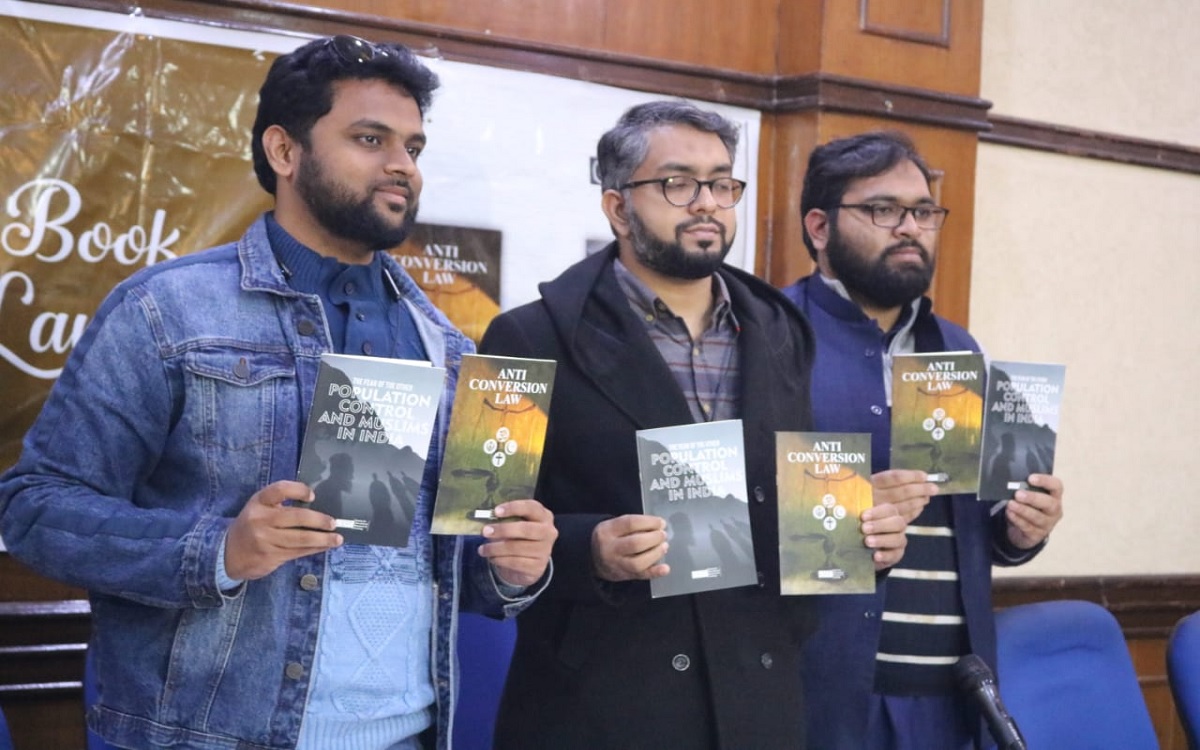‘Anti-Conversion laws, Population Control bill based on false premises,’ claims new study

The study claims that the issue of population growth and religious conversion have been used as weapons against religious minorities, particularly Muslims, to frighten the majority Hindu community.
Afnan Habib | TwoCircles.net
NEW DELHI — Several anti-conversion laws passed by many states, along with the recent Population Control Bill introduced in the Lok Sabha (lower house of parliament), are established on false assumptions, two fresh studies have revealed.
On Tuesday (December 27), the Students Islamic Organization (SIO) and the Center for Educational Research and Training (CERT) jointly hosted a press conference to introduce the two papers.
The anti-conversion law study was conducted by Arshad Khan, a law student at Jamia Millia Islamia (JMI). The paper on the Population Control Bill is jointly written by Shayma S. and Javed Ali, researchers at Jawaharlal Nehru University (JNU).
The studies examined data on population growth in different communities and revealed that access to healthcare and education, not religion, impacts the fertility ratio.
As per these studies, the issue of population growth and religious conversion have been used as weapons against religious minorities, particularly Muslims, to frighten the majority Hindu community.
During the launch, SIO General Secretary Syed Ahmed Muzakkir said that the nation is going through a difficult time. “Our economic growth is stunted, there are issues of income redistribution, there is a question mark over equitable access of education and healthcare, especially for the marginalized sections of society,” he said.
He claimed that vested interests concentrate on sowing discord among various communities in such a scenario and take advantage of the circumstance for their political gains.
“A major area in the discourse of hatred is demographic anxiety. Two flash point issues in this regard are repeatedly used to hype up the issue and create discord. One is religious conversation, and another is population growth. Both are interlinked to the issue of demographic anxiety in the majority community. Hence, we undertook these studies,” he explained.
He added that a myth of an exponential surge in the Muslim population had been created to frighten the majority Hindu population into thinking that the minorities would overwhelm and outnumber them, which, according to him, is “farther from the truth.”
According to CERT Director Fawaz Shaheen, the state government’s justifications for passing these laws include the notion of “Love Jihad,” a term popularized by the media but for which there is no supporting evidence, and the courts have clearly rejected it.
“The constitution ensures freedom of religion, including its propagation. Anti-conversion laws endanger the freedom of religion. These laws are said to be a safeguard against conversion by force which is not even backed by any reliable source or statistical data. By weaponizing the phrase Love Jihad, state governments are trying to create a fear psychosis in the majority community,” the CERT director said.
“The proposed population control legislation seeks to penalize families with more than two kids by depriving them of the benefits of government schemes,” he said.
The CERT director stated that the government's strategy was ‘disastrous.’
“As most of these families are from marginalized sections of society, and most need these benefits. The government should prioritize providing these basic facilities. Instead of using the brute force of law, the government should focus on education and awareness to regularize the country's population,” he added.
Afnan Habib is a freelance journalist based in Srinagar, Jammu and Kashmir. He tweets @afnanhabib_
